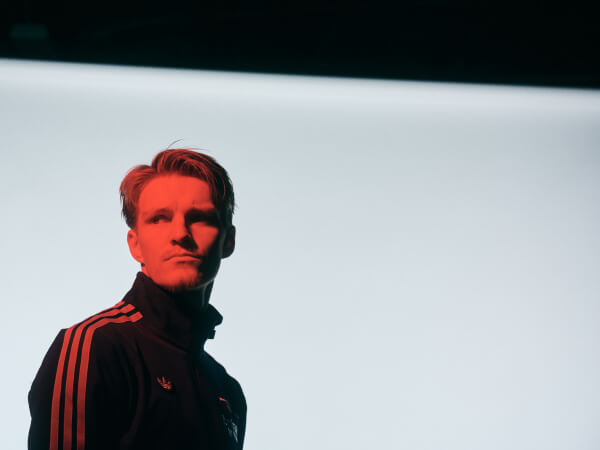Martin, can we begin with your early memories of Drammen, the city where you grew up?
Drammen is quite small. There must be around 60-70,000 people who live there, and in the little area where I grew up, everyone knew everyone else. For me, everything was about football. All my friends played football, we met up every day on the pitch, and that was basically what we did. So, it was a nice childhood with lots of friends who had the same interests. I was lucky because, around the time I started school, they put artificial grass on the fields just below. It was good timing. That was the field we played on every day, both during and after school, and also where we had training. It was kind of our second home.
You left Norway ten years ago for Real Madrid. Can you give us some insight into that time, as a 16-year-old, being sought after by such a big club. How did you handle that?
At that time, I didn’t think too much about anything that happened. But, of course, as you get older, you look back at it and realise it was very special. I got a lot of attention and a lot happened in a short period of time. And I was very young. But I was just enjoying myself and living my dream, and I was just happy achieving the things I’d dreamed about my whole life. I didn’t think too much about it at the time.
Are there any lessons from that time that still inform your career today?
The biggest lessons I’ve learnt are formed by what’s happened along the way, how I’ve handled both the ups and the downs, and all the experiences I’ve been through. You learn a lot from that, and you gain strength from it, both the positive experiences and the tougher ones. So, that’s really what I’ve taken with me: I’ve been through a lot and become a stronger and better person because of everything that’s happened.
You’ve been at Arsenal for over four years now. What makes this club so special to you?
I felt that from the moment I arrived here, I’d come home. It felt very natural and it felt like my club, my place. I felt like everything made sense from day one, with the people, the coach, the club, the playing style. I felt like everything suited me very well, and I’m still very content and feel very at home here. I’m very happy.
Was there anything in particular that drew you to Arsenal?
I would say the main reason was [coach Mikel] Arteta. I had a talk with him and listened to all his ideas, the way he wanted to play football, how he wanted to help me improve, how he wanted to use me. But, in addition to that, I’ve always had a soft spot for Arsenal. I’ve always liked watching them play football, always paid a lot of attention to their players and always kept an eye on the club. It was a combination of all of that.
Can you tell us a little bit about the first Zoom meeting you had with Mikel Arteta?
Yes, I remember it well. I was in Madrid at the time and spoke to him. I was incredibly impressed by his ideas and plans for the club, and the way he wanted to play football. You notice it right away when he speaks that this is a guy who knows what he’s talking about, and I believed in his project right away. I was convinced right away.
What kind of coaching style does Arteta have?
He can do a lot of different things, but I think his greatest strength is that he’s able to read what the team needs at any given time. First and foremost, he’s extremely good tactically and has an understanding of football that I’ve never seen before. In addition, he’s able to understand what the team needs and he has the creativity to bring that out, which makes everyone pull together in the same direction. A crucial quality for a team to be able to work.

























